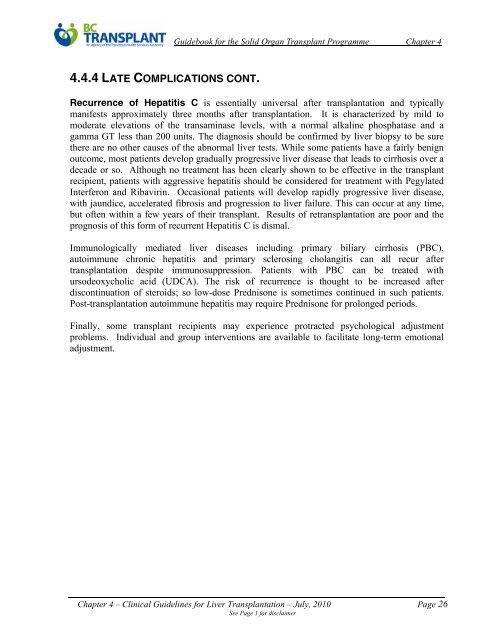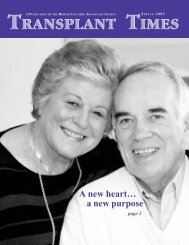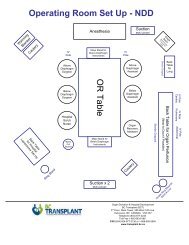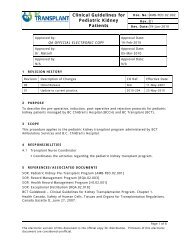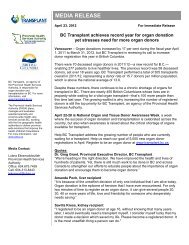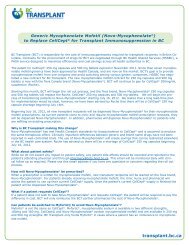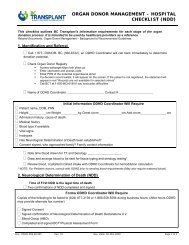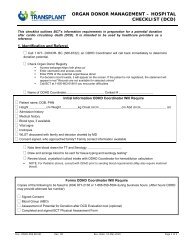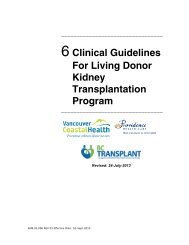4. Clinical Guidelines for Liver Transplantation (PDF) - British ...
4. Clinical Guidelines for Liver Transplantation (PDF) - British ...
4. Clinical Guidelines for Liver Transplantation (PDF) - British ...
Create successful ePaper yourself
Turn your PDF publications into a flip-book with our unique Google optimized e-Paper software.
Guidebook <strong>for</strong> the Solid Organ Transplant Programme Chapter 4<br />
<strong>4.</strong><strong>4.</strong>4 LATE COMPLICATIONS CONT.<br />
Recurrence of Hepatitis C is essentially universal after transplantation and typically<br />
manifests approximately three months after transplantation. It is characterized by mild to<br />
moderate elevations of the transaminase levels, with a normal alkaline phosphatase and a<br />
gamma GT less than 200 units. The diagnosis should be confirmed by liver biopsy to be sure<br />
there are no other causes of the abnormal liver tests. While some patients have a fairly benign<br />
outcome, most patients develop gradually progressive liver disease that leads to cirrhosis over a<br />
decade or so. Although no treatment has been clearly shown to be effective in the transplant<br />
recipient, patients with aggressive hepatitis should be considered <strong>for</strong> treatment with Pegylated<br />
Interferon and Ribavirin. Occasional patients will develop rapidly progressive liver disease,<br />
with jaundice, accelerated fibrosis and progression to liver failure. This can occur at any time,<br />
but often within a few years of their transplant. Results of retransplantation are poor and the<br />
prognosis of this <strong>for</strong>m of recurrent Hepatitis C is dismal.<br />
Immunologically mediated liver diseases including primary biliary cirrhosis (PBC),<br />
autoimmune chronic hepatitis and primary sclerosing cholangitis can all recur after<br />
transplantation despite immunosuppression. Patients with PBC can be treated with<br />
ursodeoxycholic acid (UDCA). The risk of recurrence is thought to be increased after<br />
discontinuation of steroids; so low-dose Prednisone is sometimes continued in such patients.<br />
Post-transplantation autoimmune hepatitis may require Prednisone <strong>for</strong> prolonged periods.<br />
Finally, some transplant recipients may experience protracted psychological adjustment<br />
problems. Individual and group interventions are available to facilitate long-term emotional<br />
adjustment.<br />
Chapter 4 – <strong>Clinical</strong> <strong>Guidelines</strong> <strong>for</strong> <strong>Liver</strong> <strong>Transplantation</strong> – July, 2010 Page 26<br />
See Page 1 <strong>for</strong> disclaimer


